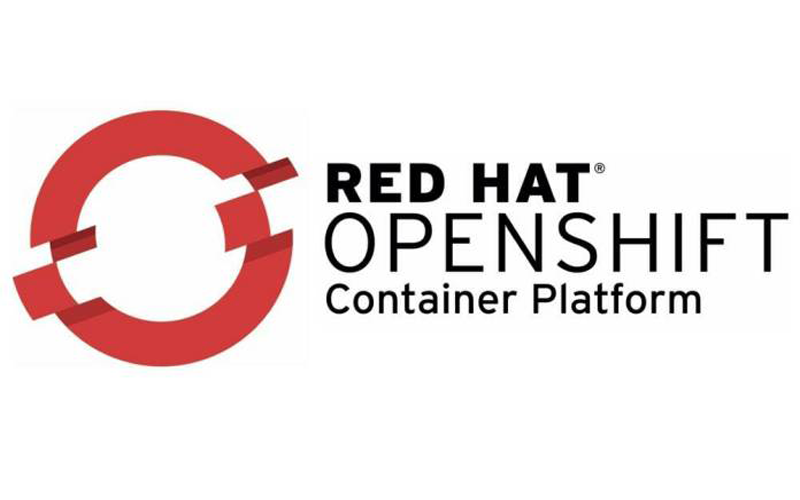Kubernetes ya no es compatible con Docker, se venia avisando desde hace tiempo pero si quieres usar docker con kubernetes solo podrás hacerlo hasta la versión 1.22. No es ninguna sorpresa pero después de tantos cluster con docker+kubernetes+Centos7.5 con excelente rendimiento me da nostalgia. ¿Pero porque migrarse entonces?. Pues aunque docker nos ha llevado a lo que ahora somos tiene carencias que han llevado a que kubernetes retire la compatibilidad con este runtine de contenedores y además a niveles prácticos de uso del cluster de kubernetes no nos va a suponer ningún cambio, es decir usaremos el cluster de kubernetes 1.23 exactamente igual que un cluster de kubernetes 1.22.
Partimos de que tenemos maquinas centos 7.9 que conforman nuestro cluster 1 master y 4 nodos y que ademas tienen ya configurado las ips staticas y el archivos hosts para que se reconozcan entre si.
192.168.1.30 k8s-master 192.168.1.31 node01 192.168.1.32 node02 192.168.1.33 node03 192.168.1.34 node04
Instalar Ansible
yum install epel-release -y yum install yum-utils -y yum install ansible -y
Con ansible instalado añadimos al final los nodos que vamos a usar, creamos un grupo «all» que incluye todas las maquinas incluido el master y otro «nodes» solo los nodos. Esto se define en el archivo «/etc/ansible/hosts»
vi /etc/ansible/hosts
[master] 192.168.1.30 ansible_hostname=k8s-master [nodes] 192.168.1.31 ansible_hostname=node01 192.168.1.32 ansible_hostname=node02 192.168.1.33 ansible_hostname=node03 192.168.1.34 ansible_hostname=node04
Tenemos que crear una clave ssh y añadir la clave publica en las maquinas que vayamos usar
ssh-keygen -t rsa -b 2048
for NODE in k8s-master node01 node02 node03 node04; do ssh-copy-id root@${NODE}; done
for NODE in node01 node02 node03 node04; do scp /etc/hosts root@${NODE}:/etc/hosts; done
Para probar que ansible funciona usamos el modulo ping
ansible all -m ping
- hosts: all
tasks:
- name: Disable SELinux
selinux:
state: disabled
- name: Disable SWAP
shell: swapoff -a
- name: Create disable swap fstab
shell: line=$(grep -n -m 1 swap /etc/fstab | cut -d ":" -f 1) && sed -e "${line}s/^/#/" /etc/fstab > /etc/fstab.bk
- name: Disabled Swap
shell: cp /etc/fstab.bk /etc/fstab
- name: Active netfiter
shell: modprobe br_netfilter
- name: Test netfilter config
shell: if grep -q "^net.ipv4.ip_forward = 1" /etc/sysctl.conf; then echo false; else echo true; fi
register: test_grep
- name: enable netfiler
lineinfile:
dest: /etc/sysctl.conf
line: net.ipv4.ip_forward = 1
when: test_grep.stdout == "true"
- name: disable firewall
shell: systemctl stop firewalld && systemctl disable firewalld && systemctl mask --now firewalld
- name: Add epel-release repo and utils
yum:
name: ['epel-release','yum-utils','device-mapper-persistent-data','lvm2','wget']
- name: Creating a repository file for Kubernetes
file:
path: /etc/yum.repos.d/kubernetes.repo
state: touch
- name: Adding repository details in Kubernetes repo file.
blockinfile:
path: /etc/yum.repos.d/kubernetes.repo
block: |
[kubernetes]
name=Kubernetes
baseurl=https://packages.cloud.google.com/yum/repos/kubernetes-el7-x86_64
enabled=1
gpgcheck=0
repo_gpgcheck=0
gpgkey=https://packages.cloud.google.com/yum/doc/yum-key.gpg
https://packages.cloud.google.com/yum/doc/rpm-package-key.gpg
- name: Install kubernetes
yum:
name:
- "kubeadm-1.23.2-0"
- "kubelet-1.23.2-0"
- "kubectl-1.23.2-0"
state: present
- name: Enable br_netfilter
shell: |
cat <<EOF | sudo tee /etc/modules-load.d/k8s.conf
br_netfilter
EOF
- name: Enable bridge nf call k8s.conf
shell: |
cat <<EOF | sudo tee /etc/sysctl.d/k8s.conf
net.bridge.bridge-nf-call-ip6tables = 1
net.bridge.bridge-nf-call-iptables = 1
EOF
- name: sysctl
shell: sudo sysctl --system
- name: Download containers-common
shell: wget https://rpmfind.net/linux/centos/7.9.2009/extras/x86_64/Packages/containers-common-0.1.40-11.el7_8.x86_64.rpm
- name: Install package.
yum:
name: containers-common-0.1.40-11.el7_8.x86_64.rpm
state: present
- name: enable Kubelet
shell: systemctl enable --now kubelet
- name: Adding 10-kubeadm.conf
blockinfile:
path: /usr/lib/systemd/system/kubelet.service.d/10-kubeadm.conf
block: |
# Note: This dropin only works with kubeadm and kubelet v1.11+
[Service]
Environment="KUBELET_KUBECONFIG_ARGS=--bootstrap-kubeconfig=/etc/kubernetes/bootstrap-kubelet.conf --kubeconfig=/etc/kubernetes/kubelet.conf"
Environment="KUBELET_CONFIG_ARGS=--config=/var/lib/kubelet/config.yaml"
# This is a file that "kubeadm init" and "kubeadm join" generates at runtime, populating the KUBELET_KUBEADM_ARGS variable dynamically
EnvironmentFile=-/var/lib/kubelet/kubeadm-flags.env
# This is a file that the user can use for overrides of the kubelet args as a last resort. Preferably, the user should use
# the .NodeRegistration.KubeletExtraArgs object in the configuration files instead. KUBELET_EXTRA_ARGS should be sourced from this file.
## The following line to be added for CRI-O
Environment="KUBELET_CGROUP_ARGS=--cgroup-driver=systemd"
EnvironmentFile=-/etc/sysconfig/kubelet
ExecStart=
ExecStart=/usr/bin/kubelet $KUBELET_KUBECONFIG_ARGS $KUBELET_CONFIG_ARGS $KUBELET_KUBEADM_ARGS $KUBELET_EXTRA_ARGS $KUBELET_CGROUP_ARGS
- name: Adding repository details in Kubernetes-devlevel repo file.
shell: |
cat <<EOF | sudo tee /etc/yum.repos.d/kubernetes-devlevel.repo
[devel_kubic_libcontainers_stable]
name=Stable Releases of Upstream github.com/containers packages (CentOS_7)
type=rpm-md
baseurl=https://download.opensuse.org/repositories/devel:/kubic:/libcontainers:/stable/CentOS_7/
gpgcheck=1
gpgkey=https://download.opensuse.org/repositories/devel:/kubic:/libcontainers:/stable/CentOS_7/repodata/repomd.xml.key
enabled=1
EOF
- name: Download containers-common rpm
shell: wget https://rpmfind.net/linux/centos/7.9.2009/extras/x86_64/Packages/containers-common-0.1.40-11.el7_8.x86_64.rpm
- name: Install containers-common.
yum:
name: ./containers-common-0.1.40-11.el7_8.x86_64.rpm
state: present
- name: Install cri-o repos
shell: |
VERSION=1.23
OS=CentOS_7
sudo curl -L -o /etc/yum.repos.d/devel:kubic:libcontainers:stable.repo https://download.opensuse.org/repositories/devel:/kubic:/libcontainers:/stable/$OS/devel:kubic:libcontainers:stable.repo
sudo curl -L -o /etc/yum.repos.d/devel:kubic:libcontainers:stable:cri-o:$VERSION.repo https://download.opensuse.org/repositories/devel:kubic:libcontainers:stable:cri-o:$VERSION/$OS/devel:kubic:libcontainers:stable:cri-o:$VERSION.repo
- name: Install cri-o
yum:
name:
- "cri-o "
- "cri-tools"
state: present
- name: Start cri-o
shell: |
systemctl daemon-reload
systemctl enable crio --now
systemctl enable kubelet --now
- name: Start kubelet
shell: systemctl enable kubelet
- name: reboot
reboot:
ansible-playbook install.yml
Despues del reinicio en el master ya podemos iniciar el cluster.
kubeadm init --apiserver-advertise-address=192.168.1.30 --pod-network-cidr=10.244.0.0/16
mkdir -p $HOME/.kube cp -i /etc/kubernetes/admin.conf $HOME/.kube/config chown $(id -u):$(id -g) $HOME/.kube/config
export KUBECONFIG=/etc/kubernetes/admin.conf
Desplegar flannel
kubectl apply -f https://raw.githubusercontent.com/coreos/flannel/master/Documentation/kube-flannel.yml
Añadir los nodos con ansible
token=$(kubeadm token create --print-join-command) && ansible nodes -a "$token"
Para verificar
kubectl get nodes


0 comentarios